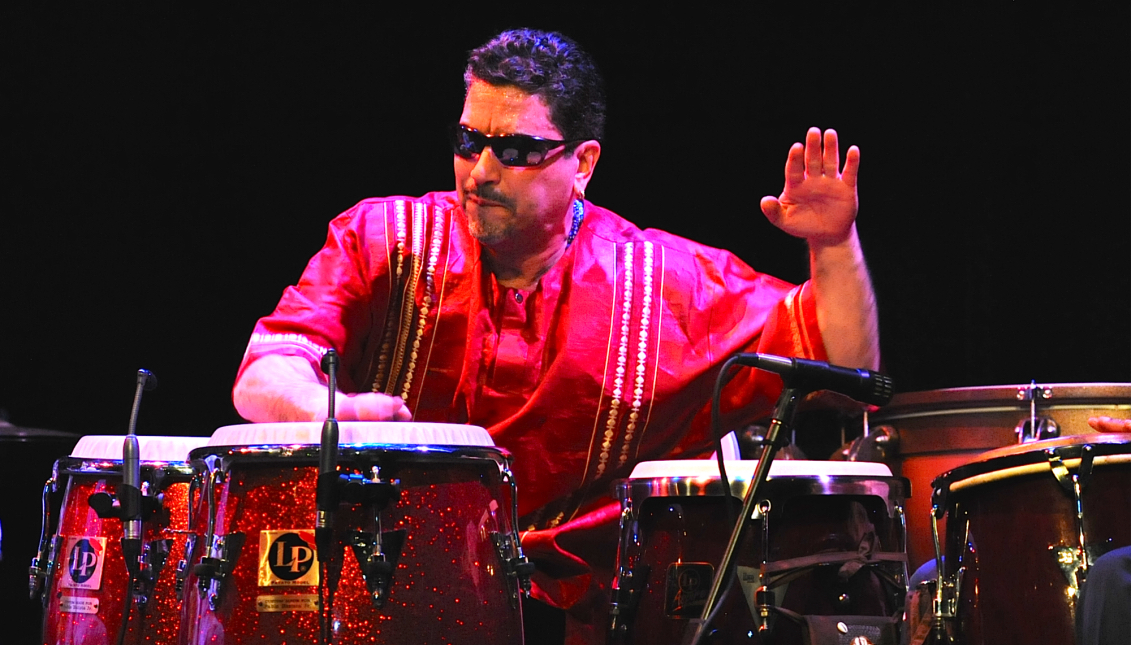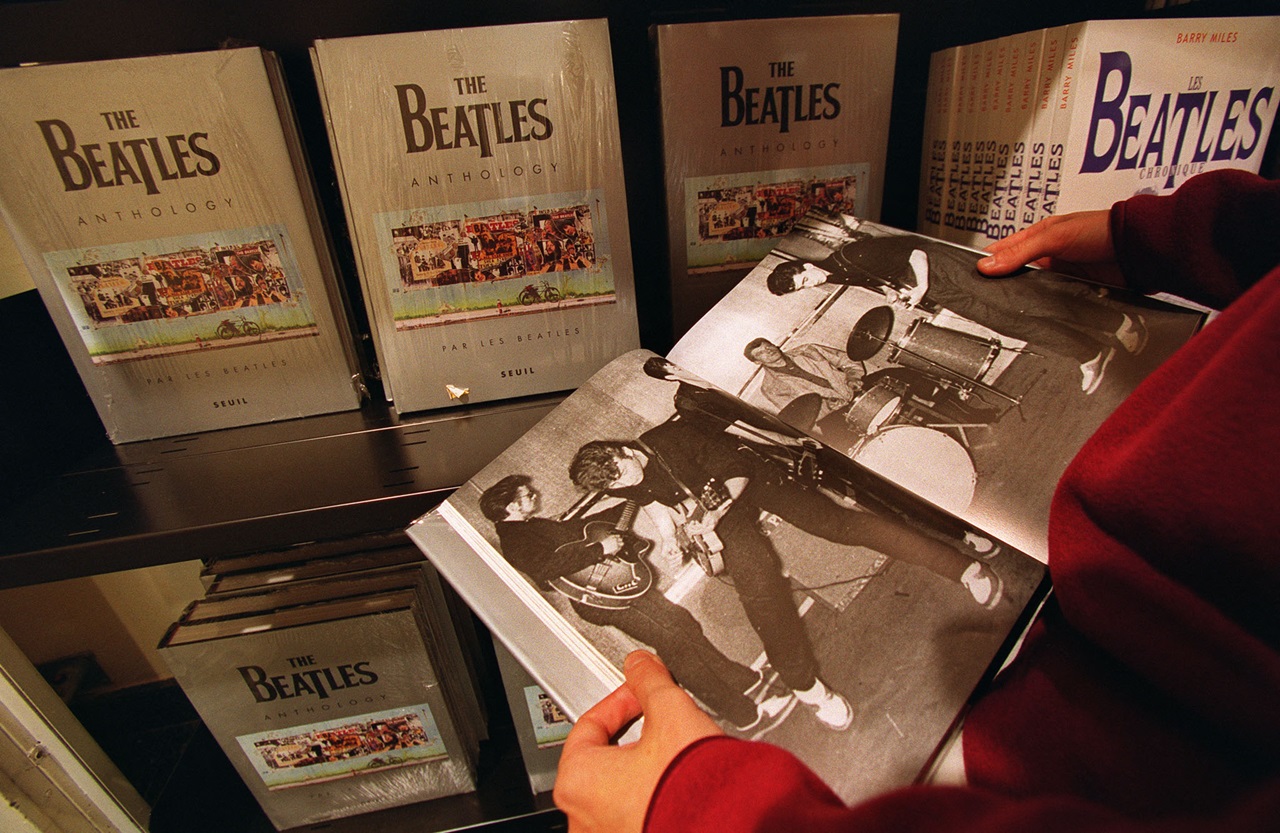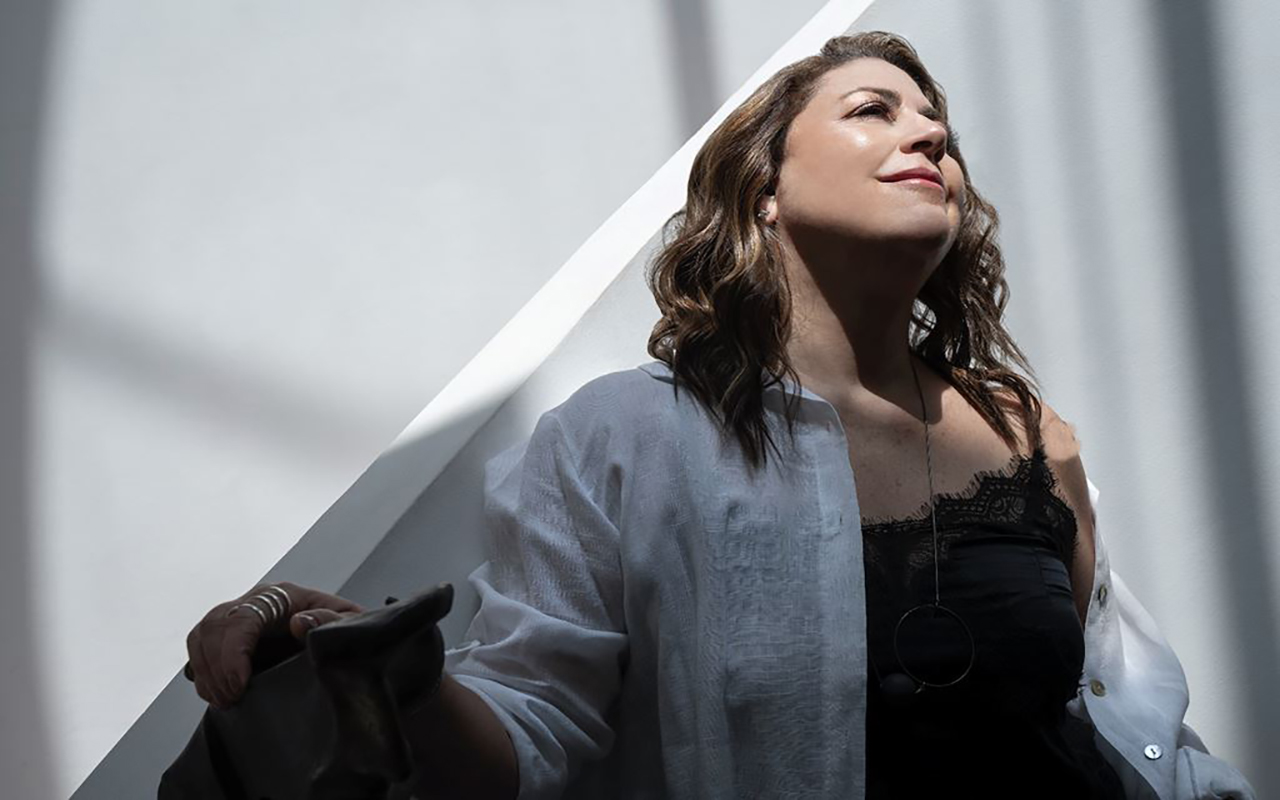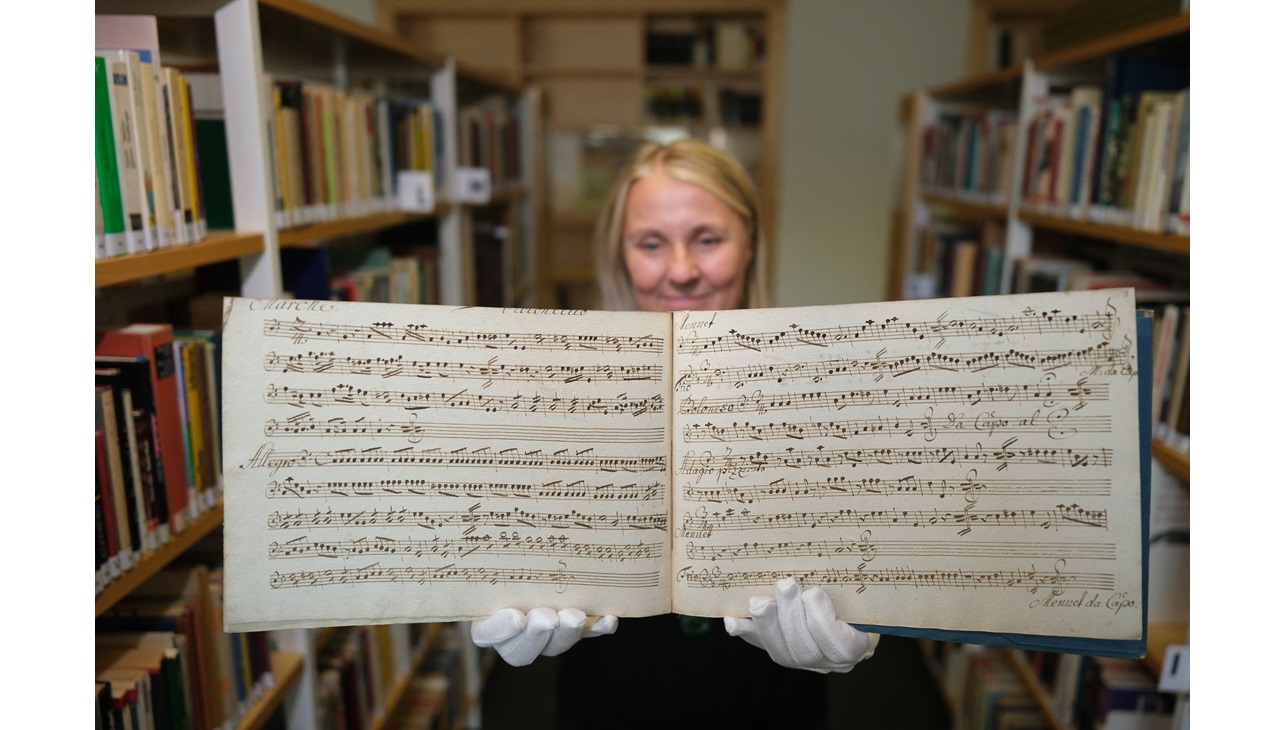
Pablo Batista brings 'El Viaje' to Temple Performing Arts Center
A swell of congas, batas, trombones, violins, cellos and just about every instrument one can imagine will greet audience members when percussionist Pablo…
A swell of congas, batas, trombones, violins, cellos and just about every instrument one can imagine will greet audience members when percussionist Pablo Batista brings “El Viaje” to the Temple Performing Arts Center later this month.
Think of it as a modern-day opera with an ambitious nine movements that pay homage to the forced migration of African slaves to the Americas. Elements of soul, jazz, folk salsa and other genres are fused together throughout the composition.
“This is an epic story that could really be applicable to almost everyone,” Batista explains. “You can apply it to the exodus of the Jews out of Egypt. You can apply it to the slaves from Africa who were brought to the Americas, or the waves of Irish, Italian, Latino and other immigrant and refugee groups who migrated under difficult circumstances then, and even now.
But you can also understand it from a personal perspective —as one who’s on a constant journey and struggle through life.”
The Temple University alum collaborated with 16 musicians and six dancers to create a multimedia experience as diverse as the story aims to tell. Batista first conceived of “El Viaje” about 15 years ago when he visited Cuba to learn more about the region’s drumming tradition. As he continued to explore the Afro-Cuban sound, an idea soon emerged to meld the shared experience of immigration into one eclectic musical composition.
“El Viaje” opens with an Eden-like setting in Africa. “The Awakening” features the Yoruba rhythm played on the sacred bata drums, a doubled-headed instrument primarily used in religious ceremonies throughout parts of Nigeria, Cuba, Puerto Rico and the United States. The opening is especially close to Batista’s own family story. He was born and raised in Bethlehem, Pennsylvania, but his parents are both from Puerto Rico.
They immigrated to the United States before Batista was born to seek work at the local steel mill. But one of Batista’s great-grandmothers was of African descent, and in many ways “El Viaje” is as much her story as it is the world’s at large.
“It is a very global perspective,” Batista says. “We have images that could resonate with the world, yet it’s our struggle as Latinos to try to assimilate, defy the odds, try to overcome obstacles, all the prejudices that come with that.”
The musical journey continues to follow the African diaspora, from slave traders capturing villagers, to the dangerous passage across the Atlantic Ocean and finally to their arrival in a strange and new world. “El Viaje” caps off where many immigrants’ stories leave off —in the United States as newcomers face the challenges of living in a place where they are not entirely welcomed.
Batista’s own journey has the added layer of a physical disability —he is legally blind.
The percussionist, who has been playing drums since the age of 9, does not dwell on whatever setbacks that might present. Instead, Batista has used his so-called impairment to develop better hearing and hand coordination. In many ways, what some might consider a curse has been a blessing for the musician.
“I’ve come to realize that some things are more physical for people and some things are more mental,” he says. “I’ve never considered it some kind of defect.”
Batista was born with a retinal disease inherited from his grandfather. His vision has decreased as he gets older, but Batista says it never stopped him from playing basketball, football and wrestling as a kid. He drove a car as a teen, was accepted to Temple University pre-law program and continued to develop his skills as a percussionist along the way. As an adult, he did encounter some discrimination from musicians who refused to play with a blind person, but that never help him back. If anything, it was fodder to keep going.
“For me, the vision thing was more like ‘You know, there are the cards I was dealt. Cool. Let’s move on to the next thing. Let’s rock.’”
Now, Batista has toured with heavy hitters such as Patti LaBelle, Teddy Pendergrass, Jill Scott and many others. In fact, the inspiration to make “El Viaje” a multimedia production came from his 12 years of touring with Alicia Keys. He always admired her light projections, back up dancers and onstage presence, and wanted to make his composing debut as memorable as one of her concerts.
But going big has also meant that the production is about six months in the making with tweaks still ongoing in the final weeks leading up to opening night. Managing the moving parts can sometimes feel like work, he says, but the final product is about shedding chains and creating a new identity.
“I want to do it my way,” he says, adding that the various movements of the journey are reflected by different genres of music. The opening scenes in Africa have a classical feel to them he, says, reflecting the origin stories of the greater world. Subsequent chase and capture scenes are much more chaotic and emotional, while the arrival to America is serenaded by a big band with a bluesy vibe.
The final movements circle back to Batista’s family, who came to Bethlehem before he was born and created a new identity for the growing family. It’s called “The Walk” and represents the experience of second and third generation in the U.S. “It’s really a lot of people’s stories,” he says. “I’m coming from my own Latino perspective, but you can really apply it to any other group.”










LEAVE A COMMENT:
Join the discussion! Leave a comment.